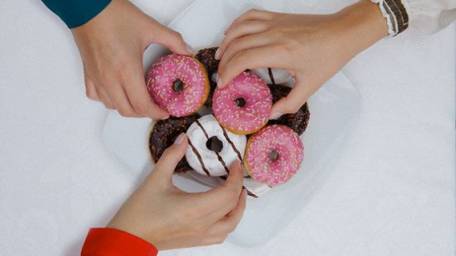-
Tips for becoming a good boxer - November 6, 2020
-
7 expert tips for making your hens night a memorable one - November 6, 2020
-
5 reasons to host your Christmas party on a cruise boat - November 6, 2020
-
What to do when you’re charged with a crime - November 6, 2020
-
Should you get one or multiple dogs? Here’s all you need to know - November 3, 2020
-
A Guide: How to Build Your Very Own Magic Mirror - February 14, 2019
-
Our Top Inspirational Baseball Stars - November 24, 2018
-
Five Tech Tools That Will Help You Turn Your Blog into a Business - November 24, 2018
-
How to Indulge on Vacation without Expanding Your Waist - November 9, 2018
-
5 Strategies for Businesses to Appeal to Today’s Increasingly Mobile-Crazed Customers - November 9, 2018
Another Way Diet Soda Causes You to Gain Weight
A published study in a medical journal confirmed what everyone who has ever waited in a fast food restaurant line has thought at least once – what’s the point of ordering a diet soda with your double bacon cheeseburger and large fries? Observing the dietary habits of over 22,000 adults in the United States, a new study found that those who drink diet soda seem to think it’s okay to binge on extra food that’s loaded with salt, sugar and fat.
Advertisement
They analyzed various studies on exactly what adults eat and drink only to find that diet soda drinkers tend to compensate by eating more of what the researchers call discretionary foods.
“It may be that people who consume diet beverages feel justified in eating more, so they reach for a muffin or a bag of chips”, said lead researcher Ruopeng An.
More than 90 percent of the survey participants consumed discretionary foods every day, gaining about 482 calories from the on average, while 97 percent of people drank at least 1 of the 5 beverage types every day.
The study also focused on the individuals’ consumption of five different types of drinks: diet or sugar-free drinks, sugar-sweetened beverages, coffee, tea and alcohol.
The team studied 10 years of data from the National Health and Nutrition Examination Survey (NHANES).
That’s defined as high calorie, low nutrient foods like fries, pastries and cookies.
People who enjoyed their coffee and diet drink were noticed to be keener on consuming discretionary foods contributing towards a higher percentage of their daily caloric intake. He added that it could also be that the lower calorie drink leaves them feeling less full, leading to a desire for more food.
Switching to diet drinks may not help people control their weight if they don’t pay attention to the quantity and quality of the foods they consume, An said. However, among people with the most education and highest incomes, diet beverages and alcohol were linked with increased calorie consumption. An commented that such a finding that suggests a possible compensation effect.
“It may be one or a mix of these mechanisms, but we don’t know which way the compensation effect goes”.
Nearly 20 percent of the population in the United States consumes diet sodas on any given day.
Participants were asked to list everything they ate or drank during two non-consecutive days, and An compared their calorie consumption in relation to five types of beverages.
Advertisement
He recommends careful documentation of drinks and discretionary foods in order to fully understand the effect the may be having on the body.





























